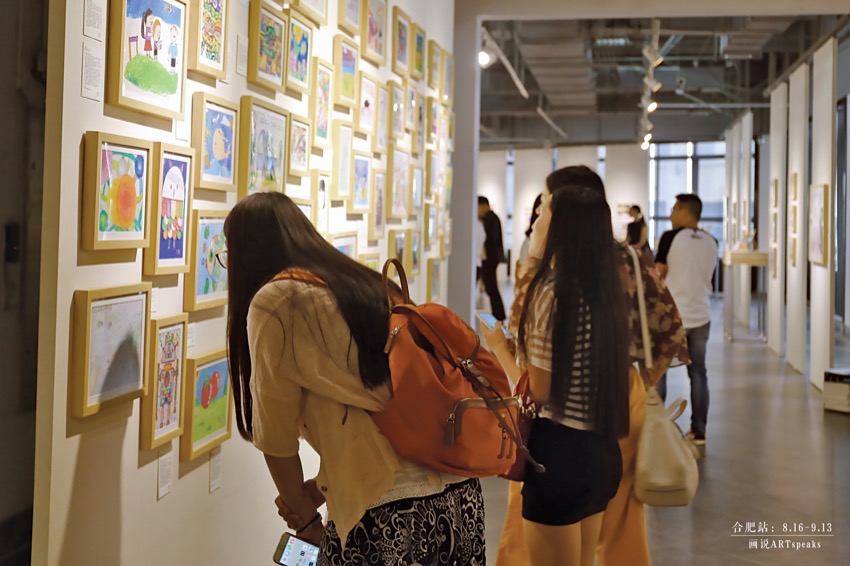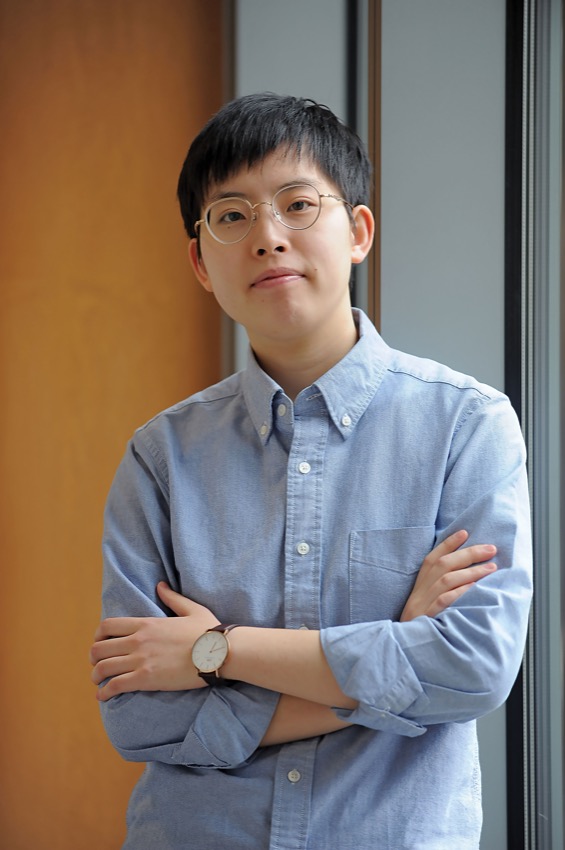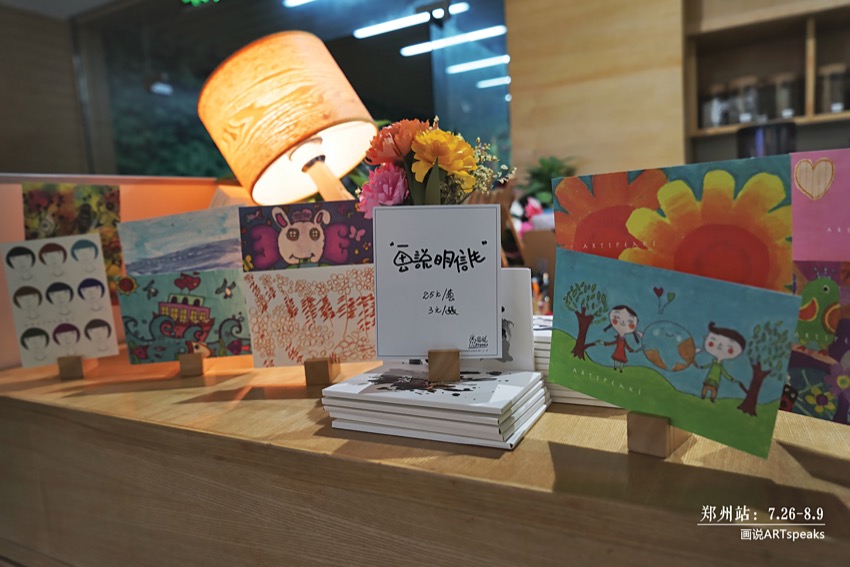Letting art speak

About four years ago, teenager Silu Lin ’17 met a young girl who loved to paint while visiting a family in a village near her home city of Fuzhou, Fujian Province, China, as part of an effort to connect children in need of educational support with people of means.
The girl, about 11 years old, was living with her disabled father and a younger brother in a small, government-funded room. Without a desk to work on, she created all her artwork on one of two beds the family shared.
“She showed me lots of her drawings, which were really gorgeous,” Lin said.
The teen wondered what other talents lay hidden among children living in these conditions and what stories they might tell.
Almost two years later, as a sophomore at Wheaton, Lin formed a nonprofit organization called ARTspeaks. She reached out to college-based service groups and other non-governmental organizations (NGOs) to join her in collecting drawings from children living in poor, mostly rural areas, with the goal of raising money to buy art supplies to send back to them.
Last spring, Lin studied abroad through Wheaton in Bhutan and took the opportunity to collect another 300 drawings from Bhutanese students.
With more than 3,400 pieces of art collected in total, Lin and her ARTspeaks team planned a series of exhibitions around China. They found bookstores with free gallery space in four cities—Xiamen, Guilin, Zhengzhou and Hefei—and planned exhibitions at each location for this past summer. In addition to drawings, the exhibitions featured videos, music and written stories from NGO volunteers about their experiences. Children were invited to participate in art projects at each exhibition’s opening.

An online fundraiser and items sold at the exhibitions, including a set of note cards featuring children’s artwork, helped raise about $10,000, enabling ARTspeaks to send 2,000 packages of drawing materials to 67 organizations across China and more than $2,000 back to Bhutan.
“My expectation for our ARTspeaks exhibition was not only to send something back to the children but also to encourage their interest in art. At the same time, I think this exhibition can provide an opportunity for our citizens to see the life of the unprivileged children in different areas,” Lin said.
Lin, a mathematics major who is interested in the ways art, education and charity work together, said the ARTspeaks project helped develop her collaboration and communication skills.
“I learned a lot about how to negotiate with different people we met, such as our sponsors, the bookstore workers, our visitors, NGO supervisors and so on. I think communication is the most difficult part to improve, especially when our members were working online in different countries with five different time zones,” she said. “When I worked by myself, like buying something, writing articles and designing the exhibitions, I could control most of the parts. But when I communicated with the sponsors, and the bookstores, I had to make sure I stated our worries and demands clearly, got the answers or response, and then negotiated again and again.”
Lin is already planning the next ARTspeaks exhibition, which she hopes to present in larger cities in China, such as Shanghai and Beijing, to raise awareness and support for ARTspeaks and its young artists. She’s also in the process of applying for NGO status in China—a designation that has more restrictions but also more respect.
And she is looking ahead to other projects.
“In China, we have 56 [ethnic] minorities and within those minorities we have over 100 dialects. Old generations have these very unique songs, and many are becoming extinct. I would like to collect some of those songs,” Lin said.

